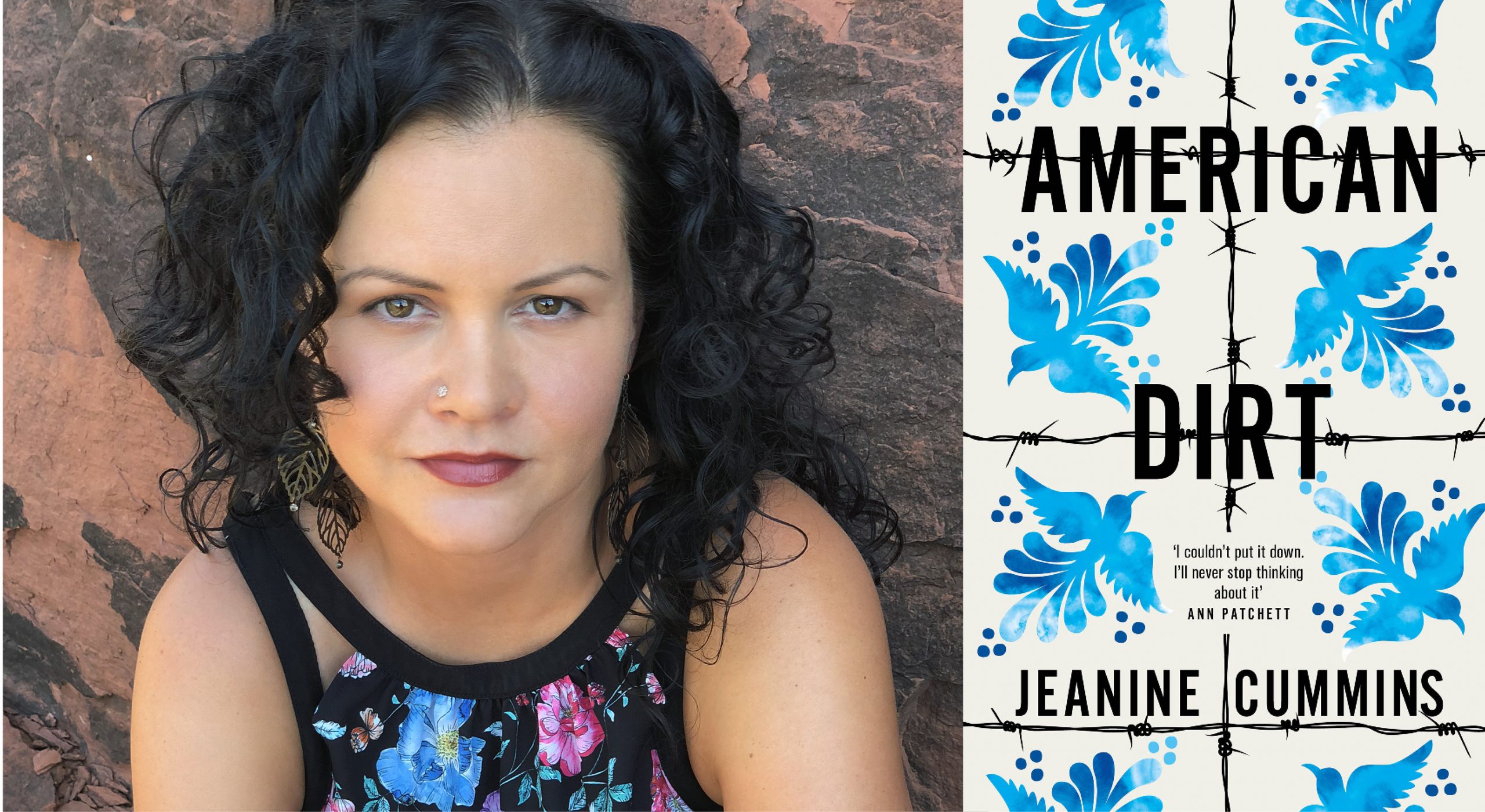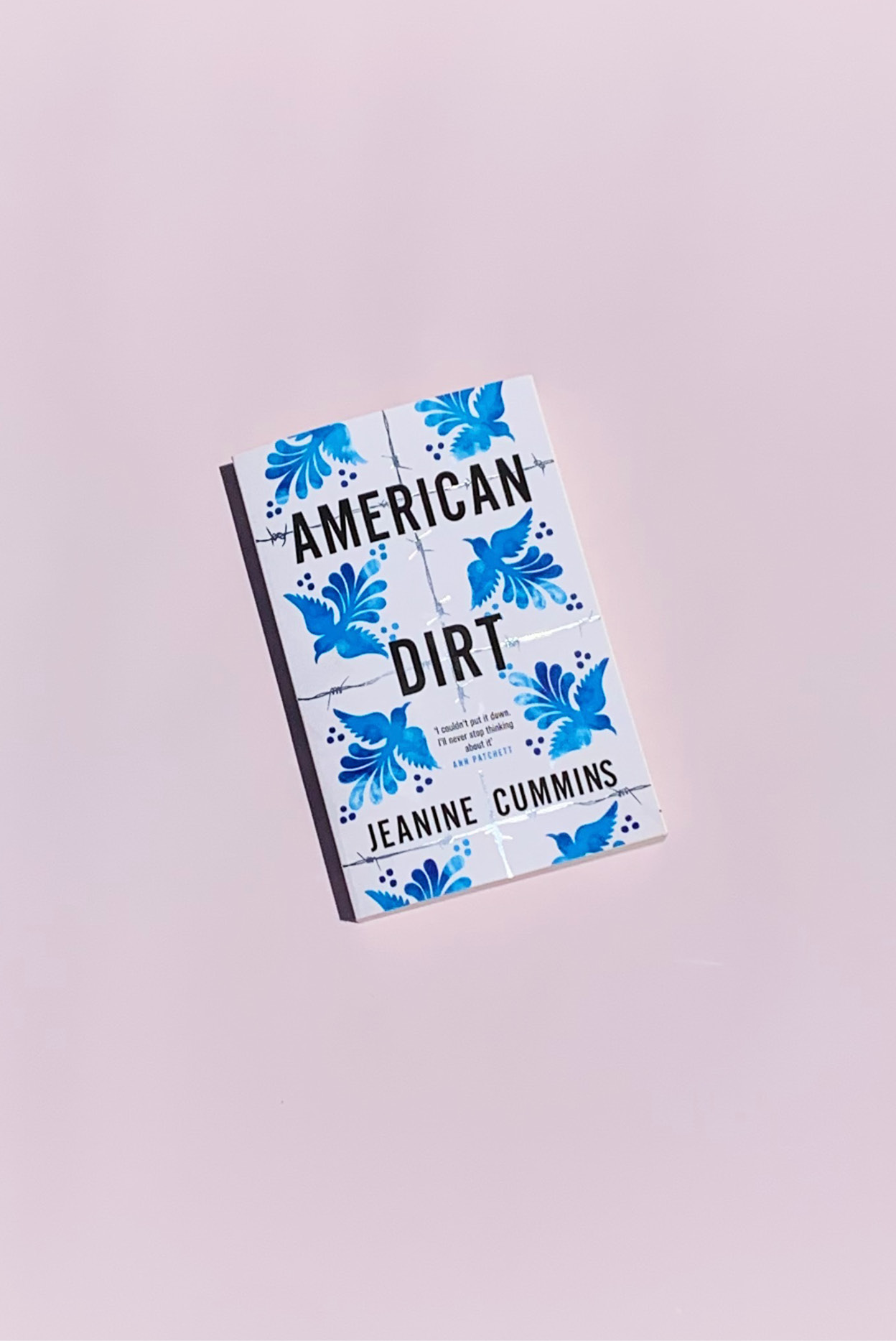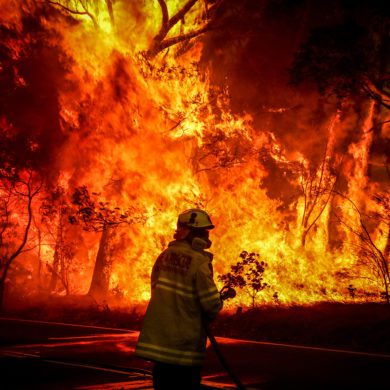American Dirt is already shaping up to be the most divisive book of the year.
On one hand, it’s been heralded as a literary triumph – selected as Oprah’s first book club pick of 2020, and described by Ann Patchett as a novel she’ll “never stop thinking about it”. On the other hand, critics have derided the author, Jeanine Cummins, for misrepresenting cultures and experiences that are not her own, and proliferating “trauma porn”. So, which is it? A masterpiece, or a mangled mess of misappropriation?
So, which is it? A masterpiece or a mangled mess of misappropriation?
The story starts with gunfire. A Mexican family, gathered for a traditional birthday celebration, is brutally murdered by a local drug cartel. The only survivors are a mother and son – Lydia, and eight-year-old Luca – who. take shelter in the bathroom. The cartel leaves a chilling message hanging around the neck of Luca’s father, Sebastián: “My whole family is dead because of me“. Sebastián was a journalist on the narcotrafficking beat, and had recently revealed the identity of the cartel’s new leader.
Lydia takes her son and as much as she can shove into an overnight bag, and flees. She can’t trust the police to keep them safe – too many of them are on the cartel’s payroll. She can’t take the family car – it’s too recognisable, and the cartel has left a note on it, too. She has no choice but to undertake a perilous journey, on foot and on bus and by train, to reach “el norte”, the United States, to seek asylum with her son.

Cummins openly acknowledges, in her lengthy author’s note, that she is not Mexican and has never experienced forced migration. She credits her interest in telling this story to her husband’s former status as an undocumented migrant (though she doesn’t mention that he migrated from Ireland, and faced no risk of detention and deportation at the southern border).
Cummins also cites her frustration with the dehumanising nature of the national debate about migration, balancing it against her fear that she may not be able to present an accurate portrayal of the situation as a privileged outsider. She phrases her concerns in an unfortunate way that her critics have leapt upon: “I wished someone slightly browner than me would write it”.
I wish someone slightly browner than me would write it
Cummins undertook several years of research, travelling through Mexico and interviewing locals, migrants, border officials, and everyone else with a stake in the story. She insists that all of the concrete information relayed through the story – such as the fact that Mexico’s unsolved crime rate exceeds 90% – was accurate at the time of writing.
Her intent is to form a “bridge”, she says, whereby non-Mexican audiences might come to a new empathic understanding of the migrant experience. Her publisher stands by her, despite the controversy, calling American Dirt “a novel of enormous power”. Still, questions linger: was this Cummins’ story to tell? Has she told it well?
Was this Cummins’ story to tell? Has she told it well?
American Dirt is a compelling and propulsive book. It showcases both the very worst of humanity, the brutality and trauma that cause Lydia and Luca to flee, and the very best, in the generosity and kindness of those that help them along the way.
What stuck with me – long after I turned the final page – was Lydia’s fierce, protective love for her son. They face unimaginable dangers on their journey, and my heart raced for them, as well as for the migrants with whom they travelled.
It seems a shame, then, that such a wrenching and impactful story was somewhat soured by, for instance, the forced inclusion of clunky, italicised Spanish dialogue. Perhaps this brilliant twist on a road-trip novel would have been better set in an entirely allegorical world – à la The Handmaid’s Tale – where forced migration was the result of fictional circumstances, leaving readers to draw the parallels for themselves. But then, would everyone be talking about it?
Make no mistake, everyone is talking about it. (Amazon has restricted its reviews due to the unprecedented influx of comments.) American Dirt will be a go-to book club pick for years, because it’s impossible not to have an opinion about this story. My hope is that, regardless of her misguided execution, Cummins does indeed serve as a bridge, and readers will go on to engage with this crucial issue – this time, through authentic first-person accounts.
American Dirt by Jeanine Cummins is out now
Want more stories like this? Sign up to PRIMER’s weekly newsletter here.









No Comments